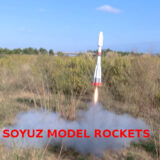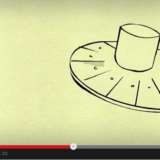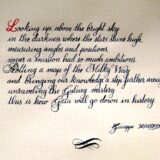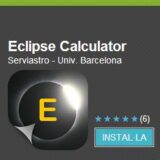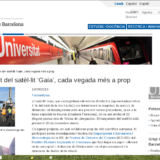Soyuz-Fregat Model Rockets
As you may know the Gaia satellite will be launched by a Soyuz-Fregat rocket. Therefore it was somehow unavoidable for me to build a Soyuz-Fregat model. I am building scale model rocket for several years already – and I am flying them. My job as astrophysicist is mainly computer-based work. Thus, building something with your own hands is a nice alternative approach for your spare time. The Russian Soyuz rocket has an unusual form with its four conical-shaped booster stages. The more usual form is to have cylindrical stages as most of the space launchers. But it turned out that the...
read moreGaia-related cartoons
Ever wondered where the Universe came from? Or more importantly, where it’s headed? Voiced by David Mitchell, this series of twelve 60 second animations examines different scientific concepts from the big bang to relativity, from black holes to dark matter. The series also explores the possibility of life beyond Earth and considers why David Bowie is still none the wiser about life on Mars. Related to public engagement activities for Gaia, The Open University in the UK has produced some short Gaia-related cartoons, narrated by David Mitchell (a famous UK comedian), as part of a...
read moreOde to Gaia
Looking up, above the brigth sky in the darkness where the stars shine high measuring angles and positions, never a mission had so much ambitions. Plotting a map of the Milky Way and bringing our knowledge a step further away, unraveling the Galaxy mistery. This is how Gaia will go down in history. Guiseppe, 30/01/2013 Giuseppe Altavilla completed his PhD at the Astronomy Department of the University of Padua (Italy) at the beginning of 2004. During his PhD he worked on a supernova search at intermediate redshift and on the absolute...
read moreEclipse Calculator, a new mobile app
Which future eclipses will be visible from my location? What will they be like? How long will they last? These are some of the questions answered by the new application Eclipse Calculator, designed by University of Barcelona researcher Eduard Masana for Android mobiles. Eclipse Calculator is an appealing tool for those who love astronomy; it is easy to use and provides information about all solar and lunar eclipses or planetary transits from 1900 to 2100. The application, public and free, can be downloaded from the Google Play website . It is currently available in Catalan,...
read moreEl llançament del satèl·lit ‘Gaia’, cada vegada més a prop (UB news, 12 Sep 2013)
TV: UB news Title: “El llançament del satèl.lit ‘Gaia’, cada vegada més a prop” Webpage: http://www.ub.edu/web/ub/ca/menu_eines/noticies/2013/12/012.html Publication date: 12 of September 2013 El satèl·lit Gaia, que cartografiarà mil milions d’estrelles (aproximadament un 1 % del total de la Via Làctia) i en determinarà la magnitud, la posició, la distància i el desplaçament amb una precisió sense precedents, ja és a la base espacial de Kourou (Guaiana Francesa), on va ser enviat el 22 d’agost passat des de Tolosa de Llenguadoc. El llançament del satèl·lit està...
read more
